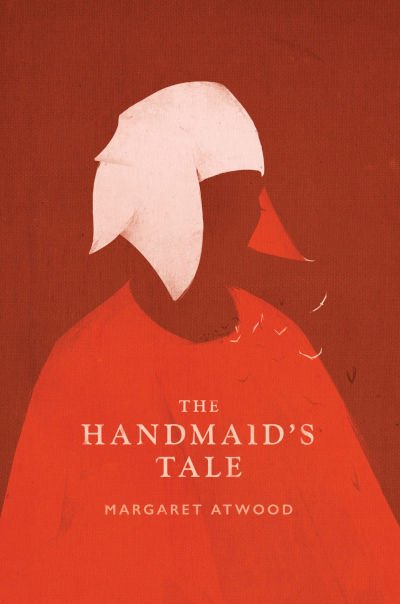The Handmaid's Tale

The Handmaid’s Tale has become a bit of an anthem for protecting women’s rights and equality in the United States in these past couple of years. The adaptation of Margaret Atwood’s book into a television series had a bit to do with that. I’ve never watched the series, but I am aware of its impact culturally to some degree. I’m told the series deviates from the book.
Works that are so socially relevant and help define a movement are sometimes hard to review because you run the risk of the modern-day Internet mobs raining all manner of hell upon your life if you disagree with their interpretation. For that reason alone, I let this great literary work sit aside for a couple of years after first hearing of it. And, I’m glad I let it be. I needed time to allow my mind to dissociate the work from the movement.
I wanted to enjoy the work on its own merits and not at the complete demand of a social movement.
When I began reading, I nearly put the book down. There was dialogue without quotation marks, a standard that has existed a long time. I’m able to forgive authors some stylistic decisions for the sake of telling their story, but this particular issue was a major annoyance early on. As I continued reading, I realized that Offred, our narrator and protagonist, was telling the story of her past when this stylistic choice was used. I was able to adapt eventually, but I struggled with it for at least half the book.
My second issue with style was the use of commas to continually string thoughts together. I found it tough to slog through at first. However, I eventually learned to appreciate this choice. What was a bit of a nuisance became a powerful method of presenting Offred’s voice.
The Handmaid’s Tale is presented in a dystopian version of the United States called The Republic of Gilead. The people live under an authoritarian theocracy. Many of the population, particularly men, are sterile. The ultimate use of women is to have babies. These are the handmaids. There are other levels that women serve in the caste system, but the handmaids were the most important.
While this was very much a patriarchal society, men were also slaves to the state. That’s not something I hear as many people talking about. Yes, women were lower than women. They had fewer rights. But, men had to perform their duty to the state or face execution.
As a man, I struggled with the first “rape” scene of the book. Even Offred didn’t want to directly call it rape. While the commander she served under had power over her, it wasn’t his power that forced the two to have sex in this instance. The state was the brutal rapist, forcing the two into an attempt of passionless procreation. In many ways, this was the worst scene from a male perspective. Most men do seek more than just the bottom half of a woman. We thrive on passion and love as much as anyone.
While the majority of men in this society had little power, women had no power. And, what power men did have, they did not wield it for good. Fred, the commander, used his status to get away with the things not officially sanctioned by the state. Because he was a man, he had enough leeway to manipulate the system. Men held the most power. When coupled with the authoritative hammer of religion, it’s not a good combination. This is a story that we’ve seen all throughout history. It still happens today in many parts of the world.
It’s a mistake to look at this objectively.
The epilogue is where Atwood’s brilliance shines. The discovery and deconstruction of Offred’s story, found recorded on tapes, was handled by men. These same men tell us that we must not apply modern (in the year 2195 AD) thinking to a society of a past. That we must look at these from a historical perspective and not make judgements. I remember such men teaching history courses when I attended college. As a society, I believe we must, at times, apply modern ethics to different cultures from the past in order to truly learn the lessons that these histories teach us. Ultimately, I have to believe that’s the lesson that Atwood wanted us to learn–we cannot simply view history without making moral judgements of the people who lived during that period, lest we repeat those mistakes from the past.
The Handmaid’s Tale is as relevant today as it was three decades ago. This novel is a champion for anyone who has the potential to be the oppressed, which is literally everyone. It should serve as a reminder that any society is only a handful of wrong turns to far less freedom than we enjoy today.
Atwood’s work is not something I’d recommend to everyone. You won’t find an exciting plot. You won’t find too many heroes. Depending on your outlook on life, you probably won’t feel particularly optimistic about the human condition. What you will find is a timeless look at the pain that the most powerful have inflicted upon others throughout history, shown through the eyes of a woman who has had everything taken from her.
⭐⭐⭐⭐/5 stars.